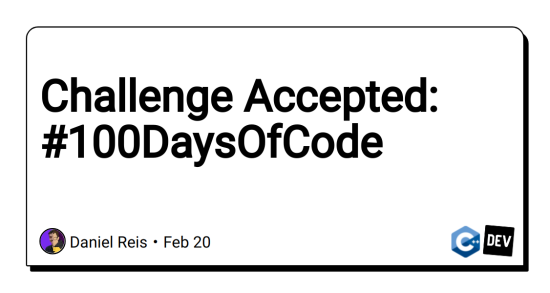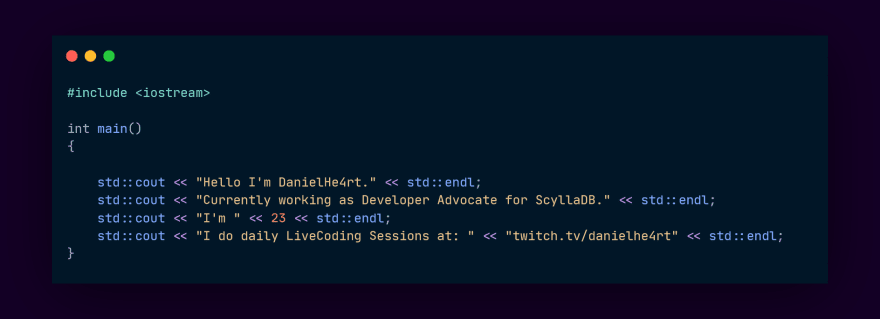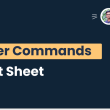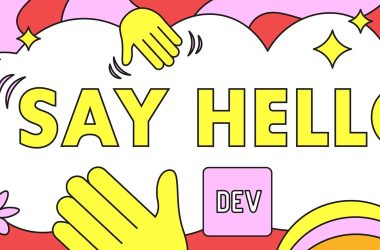We have to start learning somehow, so why not in a challenge?
Table Of Contents
- 1. Introduction
- 2. The Challenge
- 3. The Content
- 4. Final Considerations
Hey everyone! I’m Daniel Reis, 23yo Brazilian, and I want to learn more about C++, Rust and Database Paradigms. But the thing is: I’m already developing stuff since 2011, when I first wrote my first line of code of PawnLang to run a GTA SA:MP server.
So you’re should be thinking: why I entered on the #100daysofcode challenge? Very simple: I’m a newbie in a lot of technologies and concepts. I focused all this time to learn PHP and Laravel, Linux and other stuffs to get a job and enter the market but now I have a new challenge to move on.
So, even a “Senior” will be a “Junior” sometimes and it is more common than you think. Anyways, my focus will be learning everything and share it on my Twitter and try it to post daily here. Hope that I can finish the #100daysofdevto too LOL.
 Daniel Reis 🥑@danielhe4rtless
Daniel Reis 🥑@danielhe4rtless I’m publicly committing to the 100DaysOfCode Challenge starting today! What I’m going to learn more about on these days:
I’m publicly committing to the 100DaysOfCode Challenge starting today! What I’m going to learn more about on these days:– Database Paradigms
– C++, Rust and PHP
– Content Creation in EnglishHope that you folks like it💜
hey @ka11away 100DaysOfCode.com #100DaysOfCode20:33 PM – 20 Feb 2023
The #100daysofcode is a challenge using Twitter Hashtags to seal a commitment that you will study 1 hour every day for 100 days in a row.
The topic that you will study is up to you to decide. My idea here is to use it improve skills that I will need to the next steps on my carrier, such as:
- Learn about Database Paradigms and create content about it;
- Learn about C++ enough to read some huge projects on Github;
- Learn about Rust because this lang will be the future.
With that, produce all the content possible for the community, focused on beginners friendly explanations and help many people as possible.

 Daniel Reis 🥑@danielhe4rtless
Daniel Reis 🥑@danielhe4rtless Day 1 #100daysofcode
Day 1 #100daysofcodeI decided to start learning about C++ first, but first I had to setup the enviroment.
Since I’ll be using the VS Code to do everything, I found this plugin that will help me on my journey.
PS: if you’re using WSL2 remember to download it inside of it.
22:20 PM – 20 Feb 2023
That’s my first day of the challenge, and I learned the basics about C++ because it seems easier to learn than Rust in a first moment.
I had a tough time trying to build the environment on WSL because I was not event connected on the Linux env where the compiler was (total dumbass) but I saw the problem minutes after and it worked!
My goal to understand the structure of a “Hello World” program in minimal details was enough for today, so let me explain it for you.
- You can call libraries in cpp using
#include - Every C++ project HAS to be a function called
main()- Main is a function, so don’t forget the parenthesis
()
- Main is a function, so don’t forget the parenthesis
- About the
std::cout << "@danielhe4rtless" << std::endl;-
std::is a abbreviation to standard -
std::is a namespace, which means that inside thestd::has other functions awaiting to be used such asendl(end of line). - We have the
<<operator, that tells your compiler that it will read your line from the end of the line until the start. - We use the the semicolon
;to tell our compiler that this specific line of code is over and it can read the next one.
-
- You can compile using a binary called
g++and you can install it easiliy on Linux.
It was a long day streaming and learning concepts so if you liked my initiative please join me on the challenge! It will be a cool idea to be with more people through this process.
Don't forget to stay hydrated and see you tomorrow's daily post!
Follow me on Twitter: @danielhe4rtless
Follow me on Github: @danielhe4rt
Follow me on Twitch (daily livecoding sessons now in English): twitch.tv/danielhe4rt












